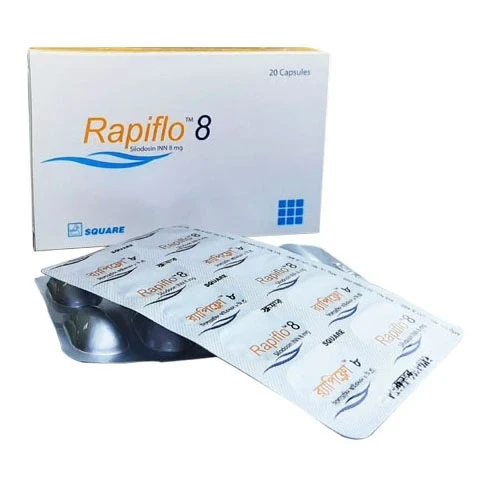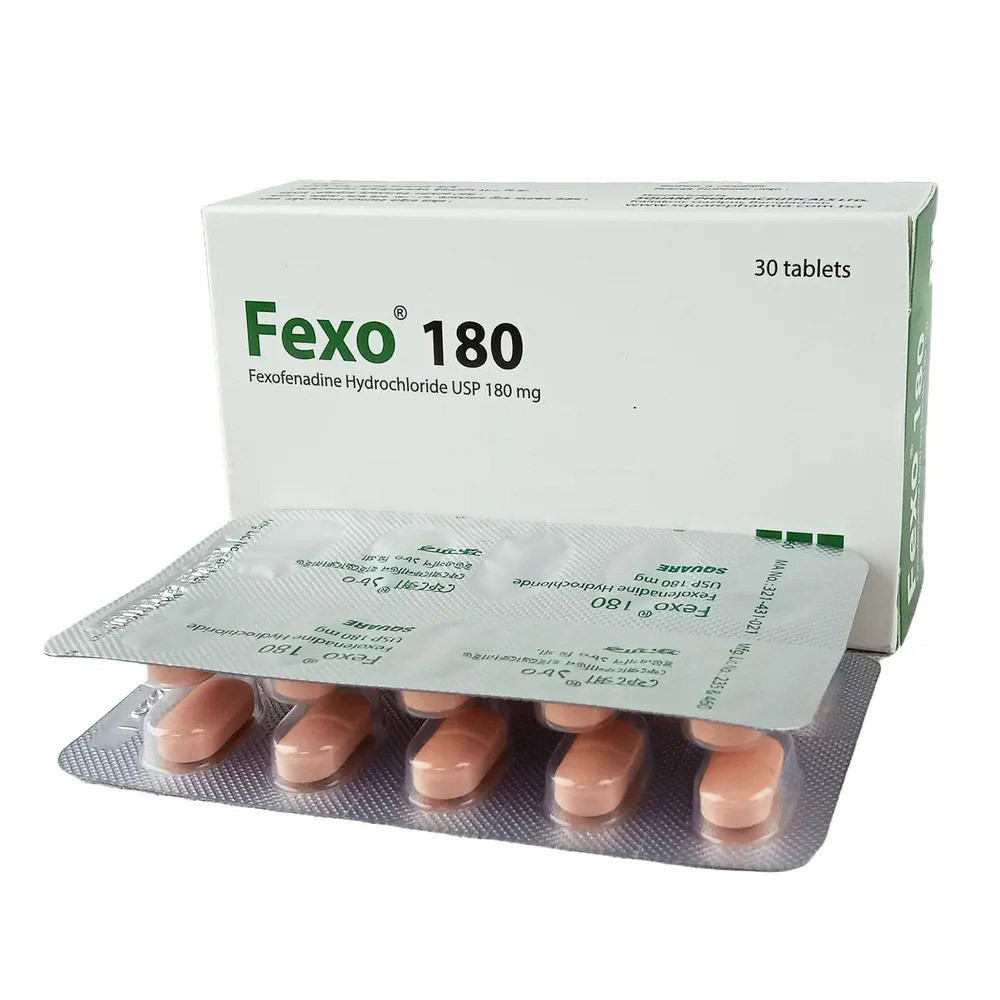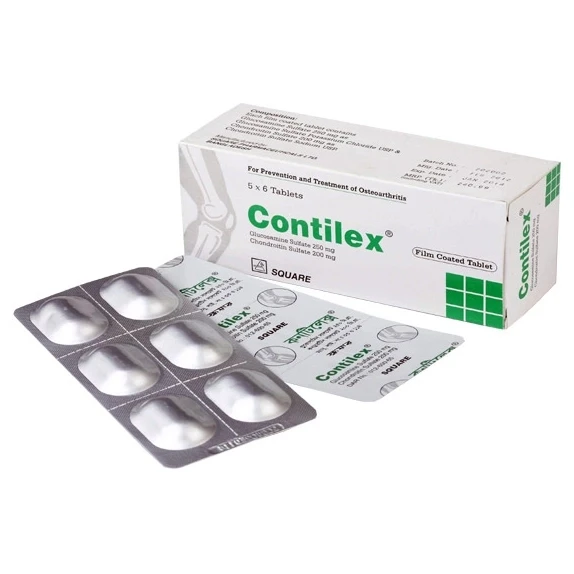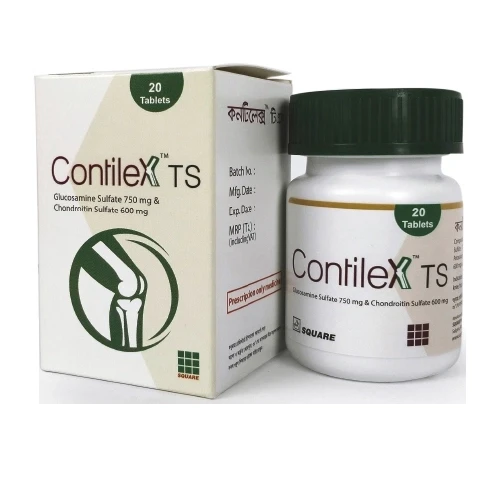

Rapiflo Capsule, Silodosin 8 mg
Inhouse product
-
৳11.40
৳12.00 -
৳42.75
৳45.00 -
৳16.63
৳17.50 -
৳2.14
৳2.25
Reviews & Ratings
Indications
Rapiflo, a selective
alpha-1 adrenergic receptor antagonist, is indicated for the treatment of the
signs and symptoms of benign prostatic hyperplasia (BPH). Rapiflo is not
indicated for the treatment of hypertension.
- Highly effective for the
treatment of Benign Prostatic Hyperplasia.
- Highest uroselectivity to
alpha-1 adrenergic receptor.
- Effective treatment option for
BPH who are not responding to Tamsulosin.
- Dose not cause orthostatic
hypotension.
- Convenient once-daily dosing.
* রেজিস্টার্ড চিকিৎসকের পরামর্শ মোতাবেক ঔষধ সেবন করুন'
Pharmacology
Silodosin is a
selective antagonist of post-synaptic alpha-1 adrenoreceptors, which are
located in the human prostate, bladder base, bladder neck, prostatic capsule
and prostatic urethra. Blockade of these alpha-1 adrenoreceptors can cause
smooth muscle in these tissues to relax, resulting in an improvement in urine
flow and a reduction in BPH symptoms.
Dosage &
Administration
The recommended dose
is Silodosin 8 mg orally once daily with a meal. 4 mg capsules taken
orally once daily with a meal for those with moderate renal impairment (CrCl
30-50 mL/min).
* রেজিস্টার্ড চিকিৎসকের পরামর্শ মোতাবেক ঔষধ সেবন করুন'
Interaction
Strong P-glycoprotein
inhibitors (e.g., cyclosporine): Co-administration may increase plasma Rapiflo
concentration. Concomitant use of PDE5 inhibitors with alpha-blockers including
Rapiflo can potentially cause symptomatic hypotension.
Contraindications
Patients with severe
renal & hepatic impairment, concomitant administration with strong
Cytochrome P450 3A4 (CYP3A4) inhibitors (e.g., ketoconazole, clarithromycin,
itraconazole, ritonavir) and patients with a history of hypersensitivity to
Silodosin.
Side Effects
Most common adverse reactions
are retrograde ejaculation, dizziness, diarrhea, orthostatic hypotension,
headache, nasopharyngitis and nasal congestion.
Pregnancy &
Lactation
Pregnancy Category B.
Silodosin is not indicated for use in women. An embryo/fetal study in rabbits
showed decreased maternal body weight at 200 mg/kg/day (approximately 13-25
times the maximum recommended human exposure or MRHE of Silodosin via AUC). No
statistically significant teratogenicity was observed at this dose. Silodosin
was not teratogenic when administered to pregnant rats during organogenesis at
1000 mg/kg/day (estimated to be approximately 20 times the MRHE). No maternal
or fetal effects were observed at this dose. Rats and rabbits do not produce
glucuronidated Silodosin, which is present in human serum at approximately 4
times the level of circulating Silodosin and which has similar pharmacological
activity to Silodosin. No effects on physical or behavioral development of
offspring were observed when rats were treated during pregnancy and lactation
at up to 300 mg/kg/day.
Precautions &
Warnings
Postural hypotension
with or without symptoms (e.g. dizziness) may develop when beginning Rapiflo
treatment. Rapiflo should not be used in combination with other alpha-blocker.
Inform patients planning cataract surgery to notify their ophthalmologist that
they are taking Rapiflo because of the possibility of Intraoperative Floppy
Iris Syndrome (IFIS)
Use in Special
Populations
Pediatric patients: Rapiflo is not indicated for use in
pediatric patients.
Geriatric use: In double-blind, placebo-controlled, 12-week
clinical studies of Rapiflo, 259 (55.6%) were under 65 years of age, 207
(44.4%) patients were 65 years of age and over, while 60 (12.9%) patients were
75 years of age and over. Orthostatic hypotension was reported in 2.3% of
Rapiflo patients < 65 years of age (1.2% for placebo), 2.9% of Rapiflo
patients > 65 years of age (1.9% for placebo), and 5.0% of patients > 75
years of age (0% for placebo). There were otherwise no significant differences
in safety or effectiveness between older and younger patients.
Renal impairment: Rapiflo is contra-indicated in patients with
severe renal impairment (CCr <30 mL/min). In patients with moderate renal
impairment (CCr 30-50 mL/min), the dose should be reduced to Rapiflo 4 mg once
daily taken with a meal. No dosage adjustment is needed in patients with mild
renal impairment (CCr 50-80 mL/min).
Hepatic impairment: Rapiflo has not been studied in patients
with severe hepatic impairment (Child-Pugh score >10) and is therefore
contra-indicated in these patients. No dosage adjustment is needed in patients
with mild or moderate hepatic impairment.
Overdose Effects
Rapiflo was evaluated
at doses of up to 48 mg/day in healthy male subjects. The dose-limiting adverse
event was postural hypotension. Should overdose of Rapiflo lead to hypotension,
support of the cardiovascular system is of first importance. Restoration of
blood pressure and normalization of heart rate may be accomplished by
maintaining the patient in the supine position. If this measure is inadequate,
administration of intravenous fluid should be considered. If necessary,
vasopressors could be used, and renal function should be monitored and
supported as needed. Dialysis is unlikely to be of significant benefit since
Rapiflo is highly (97%) protein bound.
Therapeutic Class
BPH/ Urinary
retention/ Urinary incontinence
Storage Conditions
Store at below 30°C in
a dry place protected from light. Keep out of reach of Children.
Frequently Bought Products
Product Queries (0)
Login Or Registerto submit your questions to seller
Other Questions
No none asked to seller yet
-
৳11.40
৳12.00 -
৳42.75
৳45.00 -
৳16.63
৳17.50 -
৳2.14
৳2.25







